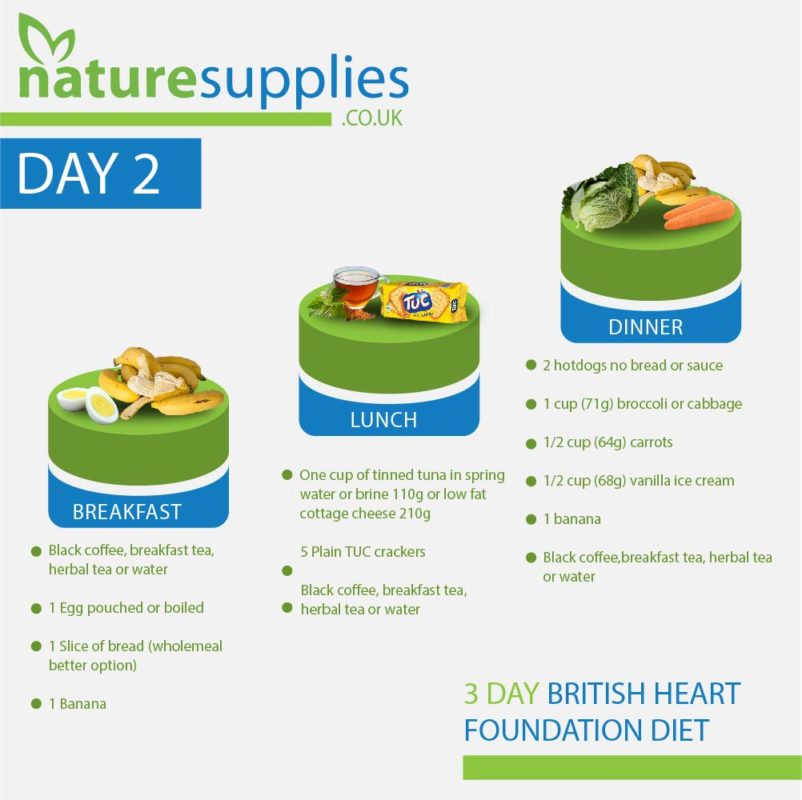
There's no better way to find out how much weight you could lose in one month than by asking others. The simple answer to the long-standing question, "How much weight can I lose in a month?" is easy. Your diet will play a role, but generally, a week's worth water weight won't cause lasting damage. You can also avoid fast food and processed carbs for the five-pound-loss period. It should last for about a month.
Dietary guidelines
Consult a doctor before you start a diet for weight loss. A weight loss program should be personalized to your individual needs and your time frame. The more time you give, the less weight will be lost per month. Talk to a doctor if there is a lot of weight you need to lose. For further assistance, your provider may refer to a nutritionist.

Regular exercise
A new exercise program can help you lose weight in just a month. You can incorporate cardio into your routine. You can perform three sets of 12 reps of each exercise. Each set can be broken up into 60 second intervals. Other types of exercise are also available if you don’t have the time or desire to lose weight fast. Expert trainers will share their favourite routines. To lose weight fast, start by incorporating jogging and walking. Each of these will burn 372 calories and improve your weight and muscle mass.
Calorie deficit
You need to understand your body and goals in order to answer the question "How much weight can I lose by eating less than I eat" Achieving a beach body is something everyone dreams of, but it might be difficult for some to maintain a long-term calorie deficit. It is possible to achieve your goals in less time than it seems. For more information, please read on.
Monitoring progress
Tracking your progress on losing weight within a month can help you reach your goals. Your progress can be tracked to identify any plateaus or obstacles. If you are not seeing results fast, you can adjust the goal. You can also identify and fix any problems in your life. Here are some ideas to help you keep track of your progress:
Avoiding fad diets
There are many reasons to stay away from fad dieting to lose weight quickly. But, perhaps the most convincing is the claims of instant results. Fad diets fail to consider the causes of weight gain, such as lifestyle habits. Instead, they promote a particular food combination while completely ignoring the importance of daily exercise and balanced diet. Fad diets tend to emphasize unhealthy food choices and lack of macronutrients. These diets can often lead to nutritional deficiencies if they are not accompanied with a good exercise program.

Set realistic expectations before embarking upon a journey to weight loss
Setting realistic expectations is key to successfully losing weight. Many people set unrealistic expectations and are disappointed when their efforts do not yield the results they hope for. It is important to know what you can reasonably expect from your weight-loss journey, and how much weight you can realistically expect to lose each week. Below are a few things to keep in mind:
FAQ
Are there side effects to intermittent fasting
Intermittent fasting doesn't have any known side effect. You might have minor problems if your plan is not well thought out.
If you skip breakfast, your day might be interrupted by irritability. Headaches, dizziness, fatigue and muscle cramps are all possible.
These symptoms often disappear within a few hours.
How long does weight loss take?
It takes time and effort to lose weight. It can take six months to lose 10%.
It's important to remember that you shouldn't expect to lose weight overnight. Your body takes time to adapt to new diets.
This means that you should gradually change your diet over several days or weeks.
Also, you should stop taking fad diets because most of them don't work. Instead, focus on improving your daily routine.
For example, if you normally eat unhealthy snacks late at night, then you should cut down on this habit.
Instead, eat healthier meals at night. You'll be able to eat healthier meals earlier in the evening, and you won't snack later at night.
Water is essential for your body. Water helps keep your body hydrated, and prevents you from becoming dehydrated. Dehydration can make you feel tired and weak.
Therefore, drinking lots of water throughout the day will help you stay energized and focused.
It is important to reduce stress levels through activities that allow you to relax. Spending time with loved one could help you reduce stress.
You can also listen to music or read books.
These activities can help you to unwind after stressful situations. You will feel happier and more confident.
It is essential to think about your health before you lose weight.
Your overall health can be measured by your physical fitness. Regular exercise and proper nutrition are key to getting fit.
How long should I do Intermittent fasting to lose weight?
It's not as easy to answer as you might think. When determining the number of days you should fast for optimal fat reduction, there are many factors to consider. These include:
-
Your age. Your age. Intermittent fasting is more difficult for younger people under 40. You have less time to recover each day from fasting. Alternately, if your age is over 60, intermittent fasting might prove too challenging because you may not have enough energy to last for extended periods of time.
-
Your current body composition. A longer period of fasting is more beneficial for those with a lot of muscle mass. However, if you have little muscle mass, then shorter periods of fasting may be better suited for you.
-
How physically active. Regular exercise may mean that your fasting window needs to be extended to allow you to get sufficient rest between sessions.
-
Your medical history. People with heart disease, diabetes, and cancer may require extra fasting monitoring.
-
How do stress and anxiety affect you? Stressful situations often make us eat less. You may need to extend your fasting times in order to avoid this problem.
-
What type of diet do you follow? Certain diets, like ketogenic diets, may require even longer fasting periods.
-
The quality of your sleep. The quality of your sleep is also a factor in increased appetite and decreased metabolism. You may need to experiment before you discover what works for you.
-
How much protein you eat. Protein stabilizes blood sugar levels. Therefore, eating more protein could result in lower insulin levels. This would allow one to fast for longer periods.
-
No matter if you are trying gain or lose weight. People trying to gain weight often need longer fasting periods than people trying to lose weight.
-
What proportion of calories do your fasting hours allow you to consume? You might lose more fat if your daily calories are lower than those you consume.
-
Your overall fitness. Faster people are more likely to be fit, and burn more calories during the day.
-
Your gender. Men typically have larger appetites than women, so they may need to fast for slightly longer periods of time. Women have smaller appetites than men, so they may need to fast just 20-30 minutes each day.
-
Your lifestyle. Are you someone who does a lot of exercise? Do you do a lot of exercise each week? Do you work at a desk all day? These things could impact the speed at which you should go.
-
How much money do you spend on food? Not all healthy food means you need to spend a lot more on groceries. You can save money by buying whole grains instead of white bread, fruits instead of candy bars, and lean meats instead of fatty cuts.
-
It's important to manage your hunger. You might not have to fast as much if your hunger isn't a problem.
Statistics
- According to Harvard Health, it's estimated that a 155-pound (70-kg) person burns roughly 112 calories per 30 minutes of weight training (5). (healthline.com)
- According to a study sponsored by the American Council on Exercise, a person weighing around 140 pounds (64 kg) would burn 108 calories at a 30-minute beginner's Pilates class or 168 calories at an advanced class of the same duration (26). (healthline.com)
- One 6-month study showed that simply doing 11 minutes of strength-based exercises 3 times per week resulted in a 7.4% increase in metabolic rate, on average. (healthline.com)
- According to Harvard Health, it's estimated that a 155-pound (70-kg) person burns around 167 calories per 30 minutes of walking at a moderate pace of 4 mph (6.4 km/h) (5). (healthline.com)
External Links
How To
9 ways to naturally lose weight
One of the most common problems people have is losing weight. You can't live a healthy lifestyle if you constantly try to lose weight. There are many ways to lose weight like dieting, exercising, etc., but these methods do not work permanently.
Today I will share natural ways to lose your weight with no side effects. Let's start!
-
Drink Lemon Water. Lemon water flushes toxins from your system. This drink will detoxify your system and make you feel more energetic throughout the day. Consuming this drink each day can help you lose weight.
-
Eat More Vegetables. Vegetables provide fiber, vitamins and minerals as well as antioxidants. They provide us with a feeling that we are full. Eating vegetables can help you lose weight.
-
Increase Protein Intake. Protein is an important nutritional element that plays an important part in building muscles. A high-protein diet can help you build lean muscles and thus reduce weight.
-
Green Tea. Green tea contains caffeine, which reduces appetite and increases metabolism. It has been shown that caffeine can increase thermogenesis, which is the process of creating heat. Coffee drinkers have lower levels than non-coffee drinkers due to thermogenesis.
-
Take Cold Showers. Cold showers can help to lose weight. According to research, taking cold showers burns up to 50% more calories than taking warm showers.
-
Avoid Alcohol. Alcohol is considered a stimulant and often leads to overeating. Alcohol consumption can cause weight gain.
-
Cardio Exercise Daily. Cardiovascular exercise has been proven to reduce weight. It improves blood circulation, energy levels, and keeps people fit. You can participate in walking, jogging, swimming, cycling, hiking, dancing, running, rowing, etc.
-
Avoid skipping meals Small meals spread throughout the day can help to curb hunger pangs. Skipping meals can lead to fatigue, lack of concentration, and even depression.
-
Reduce Sugar Consumption. Sugar can make you feel irritable and addictive. Although sugar gives you an instant boost of energy, it can make you tired and slow.